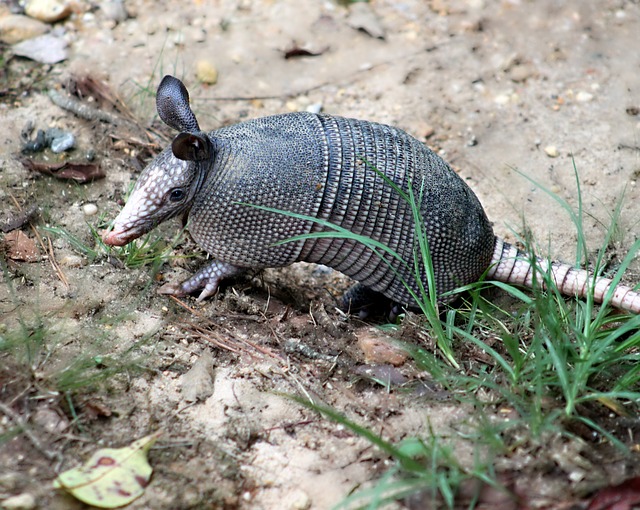 “Sometime within the last 500 years, European explorers transmitted leprosy to armadillos in the New World. Now, a new study finds that the disease is capable of jumping back from armadillos to humans.” – Live Science | File photo
“Sometime within the last 500 years, European explorers transmitted leprosy to armadillos in the New World. Now, a new study finds that the disease is capable of jumping back from armadillos to humans.” – Live Science | File photo
January 14, 2020
ClickOrlando.com – A Central Florida man suffering from a skin rash mystified doctors trying to treat his symptoms until they learned of his previous history as an armadillo hunter decades earlier leading to the diagnoses of leprosy, according to a recent scientific study.
The 58-year-old man who was suffering from a patchy rash on his arm experiencing some numbness on the affected area.
He was treated but returned when the symptoms worsened.
After looking into the man’s history, doctors learned that he trapped armadillos as a hunter, however, that was more than 30 years before he experienced the symptoms.
The man was diagnosed with Hansen’s disease, also known as leprosy, and was given antibiotics to treat the disease.
Armadillos are known carriers of the bacterial infection and if it wasn’t for the numbness associated with leprosy the disease would be a minor skin rash, according to the National Hansen’s Disease Program.
Why armadillos are carriers of the bacteria is unknown, according to the department of health, and the disease has not been found in other animals.
In 2015 and 2016, there were about half a dozen people in Central Florida who were diagnosed with leprosy, two of whom contracted the disease after coming into contact with armadillos.
Around 200 cases of Hansen’s disease are reported in the U.S. annually, according to the Florida Department of Health … Read more.
Florida reports 16 confirmed leprosy cases
January 3, 2018
Eight counties reported cases with Brevard and Volusia reporting five cases each. Broward, Collier, Miami-Dade, Osceola, Pasco and Polk counties reported one case each.

| Image: cherylholt via pixabay
It is not noted how the patients contracted the bacterial disease.
Prior to 2015, Florida reported 2 to 12 cases annually.
Hansen’s disease, also known as leprosy, is caused by Mycobacterium leprae (M. leprae ) bacteria. The infection has also been identified in nine-banded armadillos.
Approximately 95 percent of people are resistant to infection; people who develop clinical illness can experience a wide range of clinical manifestations … Source.
Disease precautions for hunters
American Veterinary Medical Foundation
There is an increasing awareness among hunters that there are medical risks associated with handling wildlife, and certain safety precautions should be taken.
The American Veterinary Medical Association (AVMA) has the following advice on certain health concerns linked to hunting, both in North America and in other areas of the world.
This document is by no means intended to discourage people from hunting; instead, it is intended to inform hunters of the risks they face and steps they can take to reduce those risks.
Hunters and their dogs can be exposed to infectious diseases not only from infected animals, but also via insect vectors and contaminated soil and water.
Diseases that are transmitted from animals to humans, either through direct contact with the animal or a contaminated surface or water, through ingestion of animal products (including meat and milk) or through insect transmission from an animal are called zoonotic (pronounced ZO-oh-NOT-ik or zoo-NOT-ik) diseases.
Insects such as mosquitoes, flies, or fleas, as well as arachnids such as ticks and fleas, serve as vectors, capable of transmitting infection from an infected animal to another animal or a person.
Protecting Hunters from Risk: Some Common Sense Guidelines
- Avoid hunting if you are feeling ill. People are more prone to disease if their immune systems are weakened by other illnesses or conditions.
- Take precautions to minimize insect bites.
- Do not handle or eat wild game or fowl that appeared ill or were acting in an abnormal manner before they were killed.
- Do not eat, drink or smoke while cleaning wild fowl or game.
- Always protect your hands with gloves (heavy rubber, latex, or nitrile) when field dressing wild game or fowl.
- Do not use the same utensils to clean different species. Read more.


